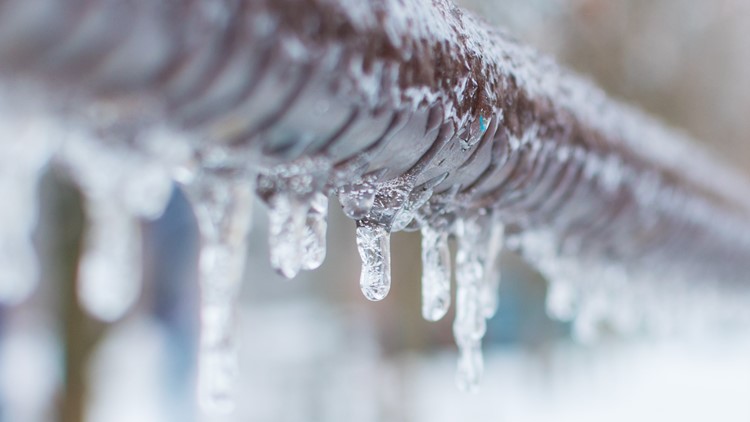Protecting Against Frozen Pipes: Top Methods for Cold Weather
Protecting Against Frozen Pipes: Top Methods for Cold Weather
Blog Article
Just how do you actually feel in regards to Prevent Frozen Pipes ?

Winter can wreak havoc on your pipes, particularly by freezing pipelines. Below's exactly how to stop it from occurring and what to do if it does.
Intro
As temperatures decrease, the threat of frozen pipelines boosts, possibly bring about pricey repair services and water damage. Recognizing how to stop frozen pipelines is crucial for property owners in cold climates.
Comprehending Frozen Pipelines
What triggers pipes to freeze?
Pipelines freeze when revealed to temperature levels below 32 ° F (0 ° C) for extended periods. As water inside the pipelines ices up, it broadens, taxing the pipeline wall surfaces and possibly creating them to break.
Threats and problems
Frozen pipelines can result in water supply disturbances, property damage, and costly repair work. Ruptured pipelines can flood homes and cause substantial architectural damages.
Indicators of Frozen Piping
Determining icy pipelines early can stop them from breaking.
Just how to recognize icy pipelines
Try to find reduced water flow from faucets, uncommon smells or sounds from pipes, and visible frost on exposed pipelines.
Avoidance Tips
Protecting vulnerable pipelines
Cover pipes in insulation sleeves or use warmth tape to secure them from freezing temperatures. Focus on pipelines in unheated or exterior locations of the home.
Home heating techniques
Maintain interior rooms appropriately heated up, especially locations with plumbing. Open up cabinet doors to enable warm air to flow around pipes under sinks.
Safeguarding Outdoor Plumbing
Yard tubes and outdoor faucets
Detach and drain yard pipes before wintertime. Install frost-proof spigots or cover outside taps with insulated caps.
What to Do If Your Pipelines Freeze
Immediate actions to take
If you suspect frozen pipes, keep faucets available to soothe stress as the ice thaws. Utilize a hairdryer or towels soaked in hot water to thaw pipes slowly.
Long-Term Solutions
Architectural changes
Take into consideration rerouting pipes away from outside wall surfaces or unheated areas. Add added insulation to attic rooms, basements, and crawl spaces.
Updating insulation
Purchase premium insulation for pipes, attic rooms, and walls. Correct insulation assists maintain constant temperatures and lowers the risk of icy pipes.
Verdict
Avoiding icy pipes needs proactive steps and quick reactions. By understanding the reasons, indications, and preventive measures, home owners can safeguard their plumbing throughout winter.
Helpful Tips to Prevent Frozen Pipes this Winter
UNDERSTANDING THE BASICS: WHY PIPES FREEZE AND WHY IT’S A PROBLEM
Water freezing inside pipes is common during the winter months, but understanding why pipes freeze, and the potential problems it can cause is crucial in preventing such incidents. This section will delve into the basics of why pipes freeze and the associated problems that may arise.
THE SCIENCE BEHIND FROZEN PIPES
When water reaches freezing temperatures, it undergoes a physical transformation and solidifies into ice. This expansion of water as it freezes is the primary reason pipes can burst. As the water inside the pipe freezes, it expands, creating immense pressure on the walls. If the pressure becomes too great, the pipe can crack or rupture, leading to leaks and water damage.
FACTORS THAT CONTRIBUTE TO PIPE FREEZING
Low Temperatures: Extremely cold weather, especially below freezing, increases the risk of pipes freezing. Uninsulated or Poorly Insulated Pipes: Pipes located in unheated areas, such as basements, crawl spaces, or attics, are more prone to freezing. Insufficient insulation or lack of insulation altogether exacerbates the problem. Exterior Wall Exposure: Pipes running along exterior walls are susceptible to freezing as they encounter colder temperatures outside. Lack of Heating or Temperature Regulation: Inadequate heating or inconsistent temperature control in your home can contribute to frozen pipes. PROBLEMS CAUSED BY FROZEN PIPES
- Pipe Bursting: As mentioned earlier, the expansion of water as it freezes can cause pipes to burst, resulting in significant water damage.
- Water Damage: When pipes burst, it can lead to flooding and water damage to your property, including walls, ceilings, flooring, and personal belongings.
- Structural Damage: Prolonged exposure to water from burst pipes can compromise the structural integrity of your home, leading to costly repairs.
- Mold and Mildew Growth: Excess moisture from water damage can create a favorable environment for mold and mildew growth, posing health risks to occupants.
- Disrupted Water Supply: Frozen pipes can also result in a complete or partial loss of water supply until the issue is resolved.
WHY CERTAIN PIPES ARE MORE PRONE TO FREEZING
- Location: Pipes located in unheated or poorly insulated areas, such as basements, crawl spaces, attics, or exterior walls, are at higher risk of freezing.
- Exterior Pipes: Outdoor pipes, such as those used for irrigation or exposed plumbing, are particularly vulnerable to freezing as they are directly exposed to the elements.
- Supply Lines: Pipes that carry water from the main water supply into your home, including the main water line, are critical to protect as freezing in these lines can affect your entire plumbing system.
- Underground Pipes: Pipes buried underground, such as those connected to sprinkler systems or outdoor faucets, can be susceptible to freezing if not properly insulated.
https://busybusy.com/blog/helpful-tips-to-prevent-frozen-pipes-this-winter/

Do you like reading up on How to prepare your home plumbing for winter weather? Try to leave a remark further down. We will be delighted to see your suggestions about this page. We are looking forward that you come back again later on. Are you aware of another person who is fascinated with the niche? Feel free to promote it. Many thanks for your time invested reading it.
Get A Quote Report this page